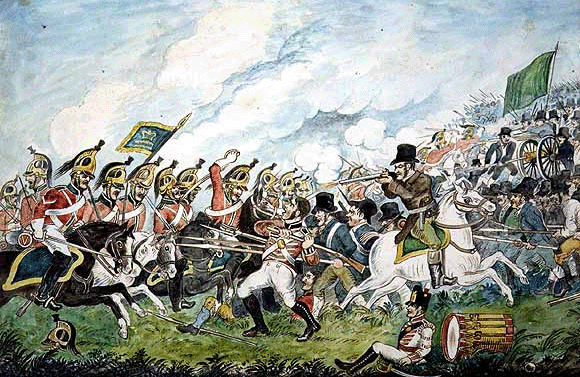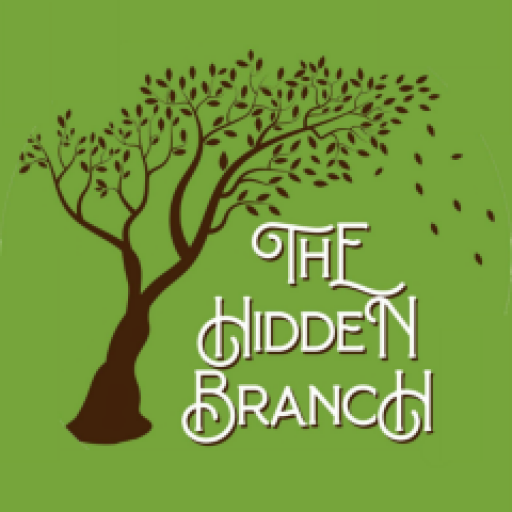Hi there! Gearóid here again. I first want to wish everyone a very happy St. Patrick’s Day. Today is a day where people all around the world, from the rural bogs of Ballyhaunis, to the bustling city of Chicago, to the moors of East Anglia, to the forests of Argentina, the deserts of Australia, the streets of Dubai, the metropolitan area of South Korea, and everywhere else in between, celebrate their Irish heritage. These people are part of what’s known as the Irish diaspora, and there are an estimated 80 million people in this group throughout the world. Some people may be Irish and they mightn’t even know it, which is why I’m making this ‘Guide to Navigating the Irish Diaspora and Finding your Place.’ This will be a step-by-step guide to figuring out your Irish heritage, just how Irish you are and how it affects you as a person. Now, let’s get to the guide!
‘The Guide to Navigating the Irish Diaspora and Finding your Place’ consists of three steps:
- Your Irish Names
- Your Location
- Your History
We are going to go through these steps in detail to uncover your Irish heritage. Of course, if you live in Ireland, and your parents are Irish, then that’s a pretty easy question, but feel free to tag along for the ride!
1. Your Irish Names
The easiest way to determine if you are of Irish descent is to look at your name and the names of your ancestors. Your name can tell you a lot about your family history. For instance, my name is Gearóid Clarke; my first name is the Irish (As Gaeilge) version of an ancestor of mine, while my surname is an anglicized version of Ó Cléirigh, which can be translated to clerk. Given that I have an Irish name, it is clear that I am of Irish heritage.
However, for some people, their name mightn’t sound as obviously Irish. For example, the surname Cunningham doesn’t exactly sound like an Irish name, right? Wrong. Cunningham can be translated into Irish as Ó Cuinneagáin, yet another Irish surname. Some, like the surname Johnson, might sound English, but you very well may have Irish ancestors with that surname. Your surname mightn’t sound Irish at all, but you may still have some Irish heritage. How’s that? Ask your mother. Her maiden name maybe something along the lines of Mary Finnegan or a plethora of Irish female names. In that case, I would definitely recommend searching your maternal line.
Some people might have to travel far back in time to discover their Irish heritage. Just remember to be on the look-out for any names that might sound English or Irish, and keep searching for birthplaces and death places, they can reveal a lot!
2. Your Location
If you have successfully determined your Irish heritage by now (which should hopefully be the case), the next step should be to investigate your location and find out what the Irish diaspora looks like in your area. If you live in the United States, statistically, there is an almost 10% chance that you have Irish heritage, that’s over 36 million people! If you live in Argentina, that chance jumps up to nearly 30%. In Australia, there’s a nearly 11% chance. World-famous cities such as Dubai in the United Arab Emirates also have large Irish populations, with over 11,000 Irish estimated to live in Dubai.
As I previously mentioned, place names are essential to figuring out your Irish heritage. Ireland is such a diverse place from the south to the north. If your ancestors come from a place such as Belfast, Derry (sometimes referred to as Londonderry), Tyrone, Fermanagh, Antrim, Armagh or Down, then your ancestors come from Northern Ireland, which is currently a part of the United Kingdom and not the Republic of Ireland. If your birth certificates say place names such as Cork, Kerry, Tipperary, Waterford or Limerick, then your ancestors came from the south of Ireland, known as Munster. If it says a place such as Dublin, Wexford, Wicklow, Louth, Meath or Kildare, then your ancestors came from the east coast of Ireland, known as Leinster. If it says Clare, Galway, Mayo, Longford or Sligo, then your ancestors came from the west of Ireland, known as Connacht. Full guides to the counties of Ireland can be found online, but I will post a picture of a map below.

By this stage, you should have definitely found out that you have Irish heritage, the next step is to discover what life was like for your ancestors in Ireland.
3. Your History
The history of Ireland is one of oppression, rebellion, famine, emigration and terrorism. Yeah, not the most delightful of times. However, understanding the history of Ireland is very helpful in gathering an understanding of your Irish heritage. In this step, I will give you a brief timeline of Irish history that your ancestors may have witnessed, or even been a part of.
The 1500s/1600s – If your ancestors were alive during the 1500s and 1600s, then they lived through the plantations, which were a period of time where the British made their mark on the Emerald Isle.
1798 – If your ancestors were alive during 1798, and if they were around 20 years old, they may have witnessed or even taken part in the 1798 rebellion, led by Theobald Wolfe Tone, which was one of the first major Irish rebellions against British occupation.

1801 – If your ancestors were alive in 1801, they lived through the Act of Union 1801, which formed the United Kingdom of Great Britain and Ireland, formally uniting the two kingdoms.
The 1840s – If your ancestors were alive during the 1840s, they suffered through what is known as the Great Famine or the Potato Famine, which was a period of time where Ireland suffered from a blight that rotted the potato crop, which many Irish were dependent on, forcing them to emigrate to places such as the United States and Great Britain. The Famine may be the reason you live in a foreign country but have Irish ancestors.

1916 – If your ancestors were alive in 1916, particularly in Dublin, they would have witnessed the 1916 Easter Rising, a failed rebellion against British occupation which eventually led to the War of Independence. Your ancestors may have fought on the streets of Dublin, taken part in the looting, or was stationed in the GPO.

1919-1921 – If your ancestors lived through the years 1919-1921, they may have witnessed the Irish War of Independence, which led to the partition of Ireland and the creation of the Irish Free State. Your ancestors may have fought against the British using guerilla warfare.
1922-1923 – If your ancestors lived through 1922 and 1923, they may have witnessed the Irish Civil War, which occurred as a disagreement arose between those for independence. Your ancestors may have fought on the pro-treaty side, the anti-treaty side, or have been a bystander to the conflict.
1939-1945 – If your ancestors lived through 1939-1945, they were alive during WW2. Ireland was neutral in this war, as there were supporters of both sides in the country. Your ancestors may have been a member of the pro-Allies party of Fianna Fáil or the pro-Axis fascist group known as the Blueshirts. During WW2, the Taoiseach, independence leader Éamon de Valera introduced Emergency Powers, which gave him more authoritarian powers during the war. Your ancestors may have lived off of rations during the war.

The 1970s-1990s – If you or your ancestors were alive during the 1970s to the 1990s, particularly in Northern Ireland, they would have witnessed the Troubles, which was a period of terrorist attacks from the Irish nationalist group known as the IRA and British unionist terrorist groups. Many innocent people were murdered during the Troubles, your ancestors maybe some of them. It is also possible that your ancestors were actually members of the IRA, as they had a large influence over the country.

1994-2007 – If you or your ancestors lived from 1994-2007, they were alive during the Celtic Tiger. The Celtic Tiger was an economic boom for Ireland in which economic growth skyrocketed. The Celtic Tiger was followed by the Great Recession of 2008, which still has its impacts to this day.
Conclusion
If you read through this guide, hopefully, you should have a much better understanding of your Irish heritage. If you’re still unsure, I would highly recommend taking a DNA test, that will confirm everything for you.
Oh, and one more thing. Happy St. Patrick’s Day!



Great summary thank you